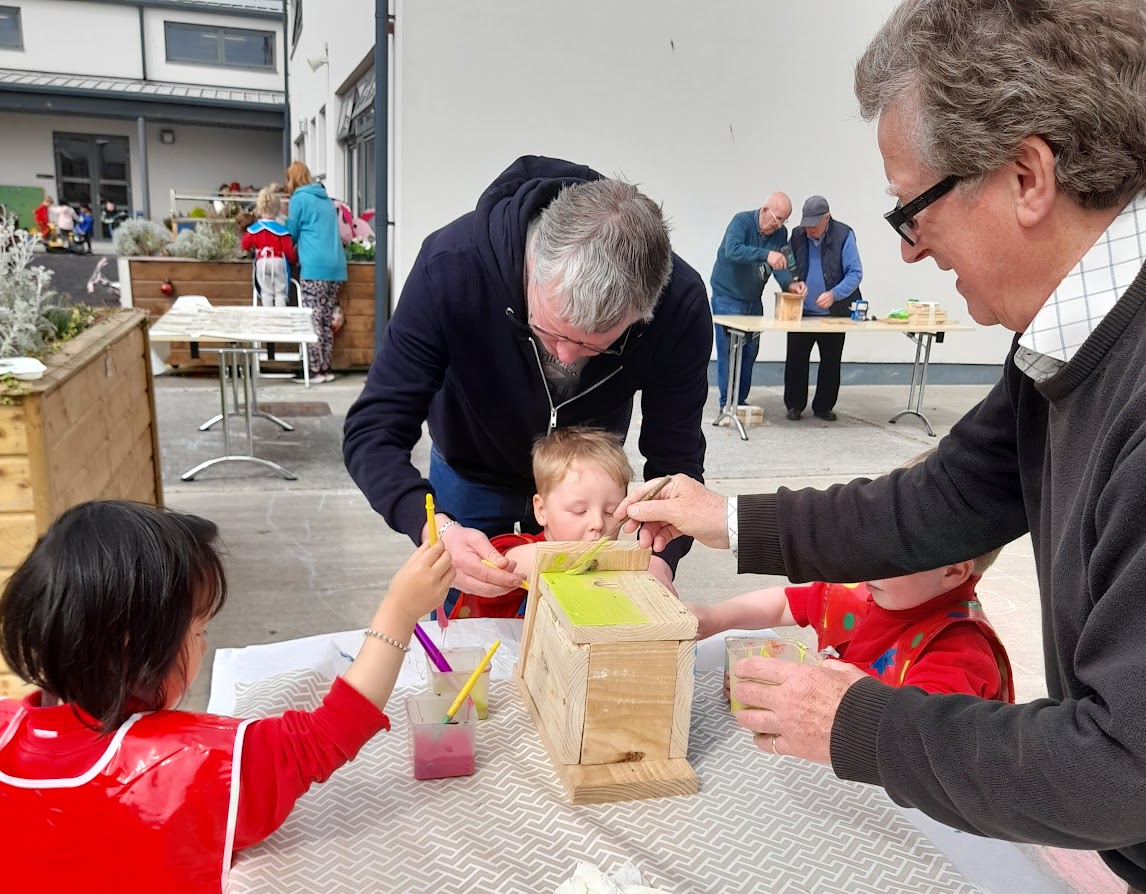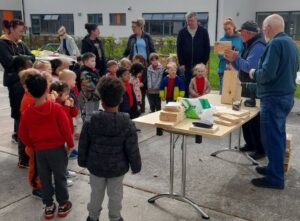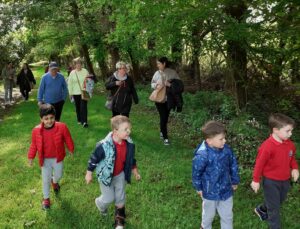Blog
The Immeasurable Gains of Intergenerational Learning

Working closely with families and communities is an important part of early childhood education. Therefore, intergenerational learning would seem to be a natural ‘fit’ for early years services, something that struck Bernie Pentony, an early year’s educator in Ireland.
For over twenty-eight years I have been employed as an early year’s educator in an early intervention preschool programme funded by the Department of Education and Skills in Ireland. Our preschool is in a disadvantaged area of a town on the east coast of Ireland, with high rates of unemployment and lone-parent families. Supporting parents and families is an integral part of our work. In 2018, I was fortunate to take part in the pilot version of the TOY training project about IGL. My work colleagues were very willing to collaborate with me to develop an IGL project that would be meaningful for our community. It seemed natural and logical to incorporate the concept of IGL as a means to further support and build positive connections between home, school, and community. The increasingly significant role grandparents are playing in supporting their families in our community also sparked our interest in IGL.

Each year, our IGL programme runs from February to May with a regular monthly IGL activity. Activities include gardening, arts & crafts, cookery, storytelling, dance and games. Our senior participants are mostly the children’s grandparents. We also visit and receive visits from the local community-based Men’s Shed – a non-profit organization open to all men that provides a place to meet friends, share meaningful activities and conversations, and access health information. The Men’s Shed participants have been a positive force. Their time, skills, and attention were shared with the children and grandparents, proving how shared learning spaces can be achieved. Our local Tai Chi senior citizen group have also taken part in our IGL programme. They show the children gentle movements and dance with them.
Reflecting back, I would say that the IGL programme has been successful because of the variety of senior participants and activities. There were other factors too, as I discovered when I decided to focus my Master’s in Teaching and Learning research study on the participating early childhood educators’ perspectives and lived experiences of IGL. The findings show that, overall, the educators had a positive experience of IGL with one of the participating educators commenting,
“I have to say it was one of the most enjoyable programmes that we’ve ever done … it was one of the highlights of my 27 years in the school…. the gain from it was just immeasurable.”

Educators in this study also highlighted the importance of IGL in supporting children’s socio-emotional development, increasingly seen as critical to success in life, especially in school. The study also showed that nurturing relationships and a positive emotional climate are essential elements for positive learning in the relationship between young children and older adults. So too was the sheer joy for all involved, as captured by this study participant:
“ ….. the happiness and the joy these interactions and activities can bring … to see how enjoyable it is for both the older and younger generations, which is what the whole thing was all about”.
The participating educators also valued how IGL promoted the participation of grandparents and other older adults in young children’s lives, and community connections something they felt should be given more attention in early years services.
“So none of that would happen if these interactions weren’t supported or able to take place.”
Like other studies of IGL [see research conducted by previous TOY blog authors Anne Fitzpatrick and Czarecah Oropilla], my research also demonstrated that leadership and commitment from designated staff are pivotal to ensuring the success of the IGL intervention. A strong recommendation from this study is to find IGL champions among staff so that IGL practice can be adopted.
Bernie Pentony is an early year’s educator and part-time lecturer in Dundalk Institute of Technology on the BA Early Childhood Studies programme. She can be contacted at: bpentony4@gmail.com